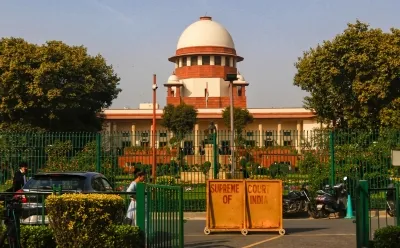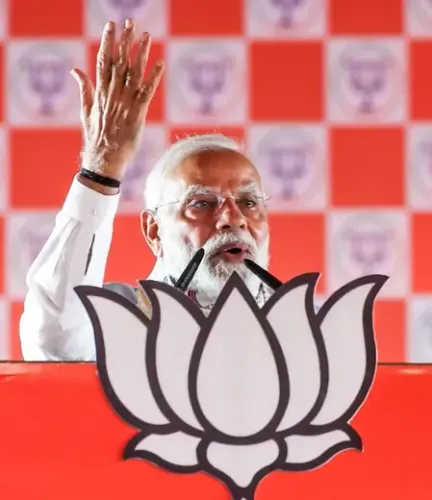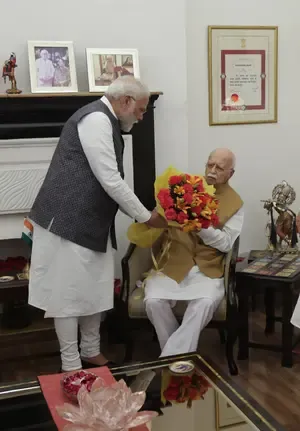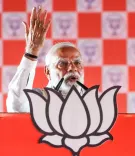Did the SC Stay the Delhi HC Ruling on NCISM Chairperson's Appointment?

Synopsis
Key Takeaways
- Supreme Court stays Delhi HC ruling.
- Dr. Deopujari's qualifications questioned.
- Legal standards for NCISM Chairperson emphasized.
- Ph.D. vs. postgraduate degree debate.
- Impact on Indian healthcare leadership.
New Delhi, June 10 (NationPress) The Supreme Court has issued an interim order, halting the enforcement of a ruling from the Delhi High Court that annulled the appointment of Dr. Vaidya Jayant Deopujari as the Chairperson of the National Commission for Indian System of Medicine (NCISM).
A panel of Justices Prashant Kumar Mishra and Manmohan has agreed to review the Special Leave Petition (SLP) submitted by the NCISM and has issued notices to Dr. Ved Prakash Tyagi and Dr. Raghunandan Sharma, the initial petitioners in the case, along with others involved.
In a ruling delivered on June 6, the Delhi High Court determined that Dr. Deopujari's appointment contradicted legal requirements, as he lacked the qualifications stipulated under Section 4(2) of the NCISM Act, 2020.
The law mandates that a candidate for the NCISM Chairperson role must demonstrate outstanding ability, proven administrative skills, and integrity. Additionally, they must hold a postgraduate degree in any discipline of the Indian system of medicine from an accredited university and possess a minimum of 20 years of experience in the field, including at least 10 years in a leadership role within healthcare delivery and the development of the Indian medical system.
The panel, led by Chief Justice D.K. Upadhyay and Justice Tushar Rao Gedela, noted that while Dr. Deopujari possesses a Ph.D., which is a higher qualification than a postgraduate degree, it does not satisfy the statutory requirement of having a postgraduate qualification.
“In assessing the term ‘Post-Graduate Degree’ in Section 4(2) of the NCISM Act, 2020, we believe it refers to a degree earned after completing a specific course of study post-graduation. A Ph.D. is considered a research qualification, not an educational one,” the Delhi High Court ruled.
Moreover, the Delhi High Court rejected the Union government's argument that Dr. Deopujari met the eligibility criteria due to his experience as head of the R&D and F&D departments at a drug manufacturing company in Nagpur for over 11 years.
It stated, “We disagree with the assertion that this experience qualifies as leadership experience in the capacity of ‘Head of a Department’ or ‘Head of an Organisation’.”
Following the stay order on the Delhi High Court's verdict, the apex court indicated that it would assess whether a Ph.D. degree could be regarded as equivalent to the legally mandated qualification of a postgraduate degree.









